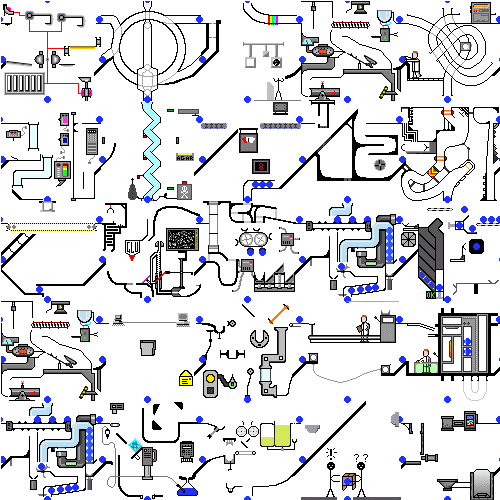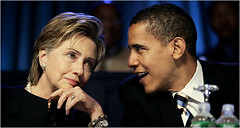
by Jay Raskin
Author of The Evolution of Christs and Christianities
December 2006
Circa 250, Cyprian wrote a letter denouncing the use of water as
opposed to wine in the Eucharist (see Epistle 62).
Andrew McGowan author of Ascetic Eucharists: Food and Drink in Early Christian Ritual Meals, notes this in an internet article called WATER IN THE DESERT: WINE, EUCHARIST AND SACRIFICE IN TERTULLIAN AND CYPRIAN.
The targets of Cyprian's critique are numerous Catholic bishops, and
the lengthy argument implies that it was necessary to do more than
state the sacramentally-obvious to fix the problem. The issue seems to
be real in areas near, but not within, those where he and Caecilius
(bishop of Biltha, apparently a respected and senior figure) had
direct authority, and the letter seems intended to have had a sort of
encyclical use.
McGowan notes Tertullian's opposition to the drinking of wine, but
suggests that this occured in his supposedly later Montanist period.
He suggests that the Montanists, like the Marcionists and others did
not use wine in the Eucharist. He adds that they were not alone:
These were far from alone. Christians elsewhere who used water in the eucharistic cup, or no cup at all, were rather more in number and
variety than has generally been acknowledged. They also tended to
abstain from all meat; this seems to be true of both the Marcionite
and the Montanist tendencies (De Ieiun. 15; Hippolytus, Ref. 8.19)
documented in African Christianity. Groups as theologically diverse as
Ebionites, possibly some Valentinian Gnostics, and other more orthodox Christians (comparable to Cyprian's implicit addressees; see below) may have had similar practices. The various apocryphal Acts and the Pseudo-Clementine corpus also manifest versions of this type of asceticism.
In Dialogue with Trypho, attributed to Justin Martyr by Eusebius, (but which I feel, is quite probably by Tertullian), we find this interesting passage (CHAPTER LXX):
And when those who record the mysteries of Mithras say that he was
begotten of a rock, and call the place where those who believe in him
are initiated a cave, do I not perceive here that the utterance of
Daniel, that a stone without hands was cut out of a great mountain,
has been imitated by them, and that they have attempted likewise to
imitate the whole of Isaiah's words? For they contrived that the words
of righteousness be quoted also by them. But I must repeat to you the
words of Isaiah referred to, in order that from them you may know that
these things are so. They are these: ... Bread shall be given to him,
and his water[shall be] sure... Now it is evident, that in this
prophecy[allusion is made] to the bread which our Christ gave us to
eat, in remembrance of His being made flesh for the sake of His
believers, for whom also He suffered; and to the cup which He gave us
to drink, in remembrance of His own blood, with giving of thanks.
According to the writer, Mithras had a eucharist meal of Bread and
water. The author theorizes the followers of Mithras knew that Christ
was to be born by the prophesy in Isaiah and being devils introduced
the Eucharist of bread and water before Christ could do it.
The First Apology of Justin Martyr (again, a work I believe was
composed by Tertullian) also mentions this (chapter 66):
Which the wicked devils have imitated in the mysteries of Mithras,
commanding the same thing to be done. For, that bread and a cup of
water are placed with certain incantations in the mystic rites of one
who is being initiated, you either know or can learn.
McGowan notes that the sacramental use of wine is a pagan custom:
In pagan antiquity wine seems to have been a sort of correlate to
meat, as sacral drink to sacral food. Ascetic and philosophical pagans
who refused meat also tended to avoid wine, not necessarily because of physiological concerns or belief in ensoulment of animals, but because of the strong symbolic association with the problematic practice of sacrifice (Philostratus, Vita Apoll. 2.35-7; cf. 2.6-7; Lucian, Fug. 14) While meat was often sacrificed and thus maintained a numinous quality even in later domestic use, wine could or even had to be sacralized on the spot. Libation was demanded at banquets, and
offering wine was a simpler alternative to offering animals, not least
for testing willingness to sacrifice (Pliny, Ep. 10.96).
CONCLUSION
It seems probable to me that the earliest Eucharist meal was one of
bread and water. In the Third century it was changed to bread and wine
to make it more appealing and natural to Pagans.
See also:
The Evolution of Christs and Christianities
Fiction Becomes History: Polly Baker and Jesus Christ




































































No comments:
Post a Comment